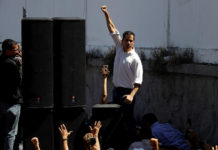President Biden is expected to announce during a speech at the White House on Tuesday that the United States has donated more than 110 million vaccine doses globally, a down payment on a pledge he made to send a half a billion doses of vaccine to poorer countries over the next year.
Mr. Biden, who for months was under pressure to share doses of the vaccine, is now seeking to position his administration as a global leader in inoculating the rest of the world amid the spread of highly contagious variants of the virus. But he also is under pressure to redirect the American public’s focus after days of policy whiplash, shifting directives on mask usage, and roiling debates about requiring workers to receive the vaccine.
Mr. Biden’s speech, planned for 3:45 p.m. Eastern time, is expected to reflect what his top advisers have been saying, with varying degrees of success, for days: that the people who get sickest from the Delta variant are unvaccinated, and that his administration is working to make vaccines available to every person who needs one. Fully vaccinated people are protected against the worst outcomes of Covid-19 caused by the Delta variant.
“This remains a pandemic of the unvaccinated,” Dr. Rochelle Walensky, the director of the Centers for Disease Control and Prevention, told reporters on Monday afternoon. “While vaccinated people can spread the virus if they get a breakthrough infection, the odds of them getting sick in the first place are far lower than those who are unvaccinated.”
An official who was familiar with Mr. Biden’s remarks but was not authorized to share them publicly also said that the president would discuss initiatives in the private sector to require vaccines for workers, and share that the officials are seeing an uptick in vaccinations in areas with high case rates.
Jen Psaki, the White House press secretary, said on Tuesday that the president would be taking a more direct tack with states and localities that have been slow to disperse coronavirus relief funds or have enacted mandates that make it harder to require masks or social distancing in public places.
“His message is going to be: ‘We’re all in this fight together,’” Ms. Psaki said, “‘but if you aren’t going to help if you aren’t going to abide by public health guidance, then get out of the way and let people do the right thing.’”
Mr. Biden had said earlier this year that he wanted to see 70 percent of eligible Americans at least partly vaccinated by July 4. The country hit that goal on Monday, about a month late and only after the Delta variant began disrupting the progress touted by the president and public health officials.
There was no celebration of reaching the delayed milestone. Instead, the Biden administration has been in a race to encourage vaccine-reluctant and vaccine-refusing Americans to receive shots as caseloads rise in states with high unvaccinated populations.
“The vaccines are doing exactly what they are supposed to do when it comes to keeping you out of the hospital, out of serious disease, and certainly, preventing your death,” Dr. Anthony Fauci, the nation’s top disease expert, told reporters.
Understand the State of Vaccine Mandates in the U.S.
The White House has also struggled to put into context the threat of the Delta variant to those who are vaccinated. Experts say that infections in vaccinated people — so called breakthrough infections — are still relatively uncommon, and that even in those cases, the vaccines appear to protect against severe illness and death.
Mr. Biden’s pledge to donate 500 million Pfizer-BioNTech doses is by far the largest yet by a single country, but it would fully inoculate only about 3 percent of the world’s population. The United States will pay $3.5 billion for the Pfizer-BioNTech shots, about $7 apiece, which Pfizer described as a “not for profit” price — much less than the $20 it has paid for domestic use.
In a fact sheet released on Tuesday, the administration said that it would work with programs focused on the equitable distribution of vaccines, including Covax, to ensure that the doses arrive in the countries that are in the most need. But health officials in countries that have received some of the doses have already warned that additional funding is needed to train people to administer the shots and fuel vehicles that transport the vaccines to clinics in remote areas.
Source : Nytimes











